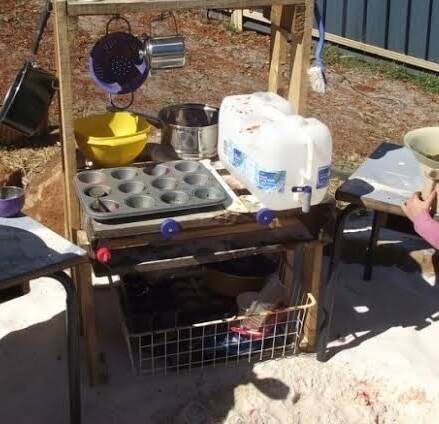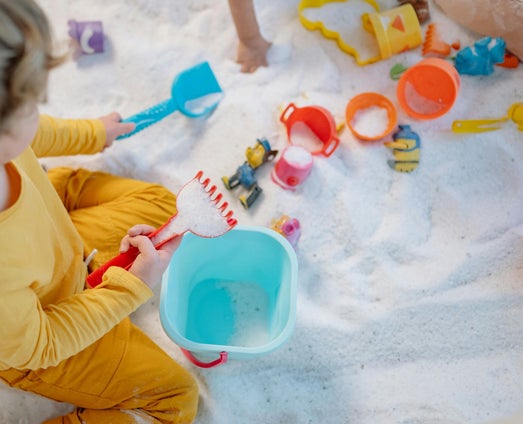Day 3: Sandpit Imaginative Play and Social Interaction
Date: 05-06-2025
Focus: Observation, Collaborative Play, Language, Creativity, and Inclusive Learning


Today, I documented a rich, play-based interaction among three children (A, K, R) during outdoor sandpit play. The children engaged in collaborative, imaginative play, creating “cakes” and “tunnels,” sharing materials, and laughing together. This small-group demonstrated emerging social competence, expressive language, and fine motor development, all of which are essential milestones for 2–3-year-olds (Mayhew, 2024).
This learning experience aligned with several EYLF V2.0 Outcomes, particularly Outcome 1: Children have strong sense of identity, Outcome 4 :Children are confident and involved learners, and Outcome 5: Children are effective communicators (AGDE, 2022). I scaffolded their learning by modelling vocabulary like “scoop,” “sprinkle,”and “decorate”and observing how peer communication evolved which is guided by Vygotsky’s theory of social learning and Piaget’s preoperational stage, which highlight the role of symbolic thought and peer interaction (McLeod, 2025; Lally & Valentine-French, 2019).
From a pedagogical point, I applied intentional teaching strategies through observation, encouragement, and language modelling, while honouring the children’s autonomy and creativity which reflects play pedagogy that values sensory, dramatic, and role-based experiences as developmental platforms(Danniels & Pyle, 2022).
The experience demonstrated the importance of respectful relationships and a responsive learning environment. I facilitated shared storytelling and ensured that materials were inclusive and accessible, supporting the children’s agency and identity. By celebrating diverse pretend baking ideas like birthday cake and sugar sprinkles, I embedded cultural competence, equity and creativity. For future planning, I want to add cultural food props to extend inclusion.
Professionally, I sticked to the ECA Code of Ethics (Early Childhood Australia, 2016) by ensuring confidentiality, showing respect, and prioritising the children’s interests. I upheld National Regulations 73 and 155, which require experiences to enhance learning and respectful relationships. This aligns with NQS QA1.1.2:Child-centred, QA5.2.1: collaborative learning, and QA3.2.1: inclusive environment(ACECQA, 2020).
This activity also supported Graduate Teaching Standards 1.5: differentiated teaching, 3.4: selecting engaging resources, and 4.3: managing behaviour respectfully(AITSL, 2017). The planning of the “Bakery in the Sand” experience shows responsiveness to individual learning needs and promoted exceptionality by observing and supporting different language abilities and social preferences.
While this session did not clearly address Aboriginal or Torres Strait Islander perspectives, I plan to incorporate natural materials and Dreaming stories into future sensory play to build cultural awareness and sustainability as a key part of EYLF V2.0 principles and QA6:Collaborative partnerships with families and communities(ACECQA,2020).